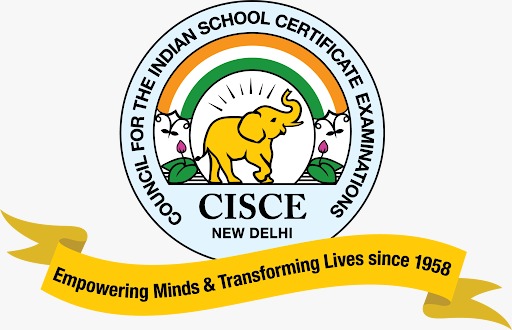Introduction
Effective exam preparation is the cornerstone of academic success. It not only equips students with the knowledge needed to excel but also builds confidence and reduces anxiety. This comprehensive guide explores various strategies to master exam preparation, from understanding the exam format to developing effective study techniques. By mastering these methods, students can enhance their performance, achieve their academic goals, and develop lifelong learning skills.
Understanding the Exam
Understanding the Format and Content of the Exam
Grasping the format and content of an exam is paramount for effective preparation. It allows students to tailor their study strategies to meet specific requirements. Familiarity with the types of questions, the weighting of different sections, and the overall structure helps in strategizing study sessions and alleviating exam-day anxiety.
Different Types of Exams
Exams come in various formats, each requiring different preparation tactics.
- Multiple Choice: Tests knowledge and quick thinking. Requires familiarity with a wide range of topics.
- Essay: Assesses depth of understanding and ability to articulate thoughts coherently. Requires good writing skills and critical thinking.
- Practical: Evaluates hands-on skills and application of knowledge. Requires practice and proficiency in practical tasks.
Tips for Gathering Information About the Exam Requirements and Expectations
To gather information about exam requirements:
- Consult Teachers or Professors: They can provide insights into the format and focus areas.
- Review Course Materials: Syllabi, lecture notes, and textbooks often outline key topics and types of questions.
- Practice Past Papers: These offer a clear indication of what to expect and highlight recurring themes or question types.
Time Management
Importance of Creating a Study Schedule and Managing Time Effectively
Creating a study schedule is crucial for systematic and stress-free preparation. It ensures that all subjects are given appropriate attention and helps in maintaining a balanced study routine. Effective time management prevents last-minute cramming and promotes better retention of information.
Strategies for Prioritizing Study Tasks and Allocating Time for Each Subject
To prioritize study tasks:
- Identify Key Subjects and Topics: Focus on areas that carry more weight or are more challenging.
- Break Down Study Sessions: Allocate specific time slots for each subject based on difficulty and importance.
- Set Achievable Goals: Establish daily and weekly targets to stay on track.
Techniques for Avoiding Procrastination and Staying Focused During Study Sessions
Avoiding procrastination and staying focused can be challenging but is essential for productive study sessions:
- Use the Pomodoro Technique: Study for 25 minutes and then take a 5-minute break. Repeat.
- Eliminate Distractions: Find a quiet study space, turn off notifications, and limit access to social media.
- Stay Motivated: Reward yourself after completing study goals to maintain motivation.
Effective Study Techniques
Proven Study Methods
- Active Recall: Actively stimulating memory during study sessions. This method involves testing yourself regularly rather than passively reading notes.
- Spaced Repetition: Reviewing material at increasing intervals to enhance long-term retention.
- Summarization: Writing summaries of the material in your own words to better understand and remember key concepts.
Explanation of How to Use Various Study Aids
Study aids can make learning more interactive and effective:
- Flashcards: Great for memorizing facts, definitions, and concepts. Use them for quick reviews and self-testing.
- Diagrams and Charts: Visual aids that help in understanding and retaining complex information. Ideal for subjects like biology and history.
- Mnemonics: Memory aids that simplify complex information into easier-to-remember formats, such as acronyms or rhymes.
Tips for Selecting the Most Suitable Study Techniques
Selecting study techniques depends on individual learning preferences:
- Visual Learners: Benefit from diagrams, charts, and videos.
- Auditory Learners: Prefer listening to lectures, discussions, and audio recordings.
- Kinesthetic Learners: Learn best through hands-on activities and practical exercises.
Organization and Note-taking
Importance of Organizing Study Materials and Notes
Organized study materials facilitate efficient review and help in quickly locating important information. Keeping notes, textbooks, and assignments in order prevents confusion and saves time.
Strategies for Effective Note-taking During Lectures and Study Sessions
Effective note-taking strategies include:
- Using the Cornell Method: Dividing the page into sections for notes, key points, and summaries.
- Highlighting Key Information: Using colors to differentiate between important points, definitions, and examples.
- Summarizing: Writing brief summaries of each lecture or study session to consolidate learning.
Tips for Creating Concise and Organized Study Guides or Summaries
Creating study guides and summaries:
- Condense Information: Focus on key points and essential information. Avoid unnecessary details.
- Use Bullet Points and Headings: Organize content logically to make it easy to follow.
- Include Visuals: Integrate charts, diagrams, and tables to break up text and highlight important concepts.
Importance of Regular Practice and Review
Regular practice and review reinforce learning and help in identifying knowledge gaps. Consistent practice improves retention and builds confidence in tackling different types of questions.
Tips for Using Past Exam Papers, Practice Tests, and Quizzes
Using past papers and practice tests:
- Simulate Exam Conditions: Practice under timed conditions to improve time management.
- Review Mistakes: Analyze errors to understand weaknesses and avoid repeating them.
- Cover a Range of Topics: Ensure a comprehensive understanding by practicing a variety of questions.
Techniques for Identifying Strengths and Weaknesses
Identifying strengths and weaknesses:
- Self-Assessment: Regularly assess performance on practice tests to identify strong and weak areas.
- Focus on Weaknesses: Allocate more time to subjects or topics where performance is lacking.
- Seek Feedback: Get feedback from teachers or peers to gain different perspectives on areas for improvement.
Test-taking Strategies
Effective Test-taking Strategies
Effective test-taking strategies include:
- Reading Questions Carefully: Ensure full understanding before answering. Misreading can lead to avoidable mistakes.
- Managing Time Wisely: Allocate time based on question weight and difficulty. Don’t spend too long on any one question.
- Answering Strategically: Tackle easier questions first to secure marks, then move on to more challenging ones.
Tips for Dealing with Exam Anxiety and Staying Calm
Managing exam anxiety:
- Practice Relaxation Techniques: Deep breathing, meditation, and visualization can help calm nerves.
- Stay Positive: Maintain a positive mindset and focus on past successes.
- Prepare Thoroughly: Confidence comes from knowing you’ve prepared well.
Techniques for Reviewing and Checking Answers
Reviewing and checking answers:
- Double-check Calculations: Ensure all mathematical and logical calculations are correct.
- Review Written Responses: Look for grammar, spelling, and clarity.
- Ensure All Questions are Answered: Make sure no questions are missed, even if it means providing an educated guess.
Conclusion
Effective exam preparation encompasses understanding the exam format, managing time, employing effective study techniques, organizing study materials, and practicing regularly. Each strategy plays a crucial role in achieving success.
Implementing these strategies can significantly improve exam performance. Consistency and dedication in preparation lead to better outcomes and reduced anxiety.
Embarking on the journey of exam preparation is a step towards academic and personal growth. With the right strategies and a positive mindset, success is within reach. Believe in your abilities and approach each exam with confidence and determination.
FAQs (Frequently Asked Questions)
- How can I create an effective study schedule that balances all my subjects and ensures thorough preparation?
Creating a balanced study schedule involves identifying key subjects, breaking down study sessions into manageable time slots, and setting achievable goals. Allocate time based on subject difficulty and importance.
- What are some practical techniques for improving my note-taking skills during lectures and study sessions?
Effective note-taking techniques include using the Cornell Method, highlighting key information, summarizing main points, and reviewing notes regularly. Practice active listening and focus on capturing essential details.
- How can I effectively manage my time during exams to ensure I have enough time to answer all questions?
Manage exam time by reading questions carefully, allocating time based on question weight, answering easier questions first, and reviewing answers if time permits. Practice timed exams to improve time management skills.
- What are some strategies for dealing with exam anxiety and staying calm during stressful exam situations?
Combat exam anxiety with relaxation techniques such as deep breathing and meditation. Maintain a positive mindset, focus on preparation, and avoid negative self-talk. Confidence in preparation reduces anxiety.
- Are there any specific tips for tackling different types of exams, such as multiple choice, essay, or practical exams?
For multiple choice exams, eliminate incorrect options and make educated guesses. For essay exams, outline key points before writing and stay focused on the topic. For practical exams, practice hands-on tasks regularly and review procedures thoroughly.






